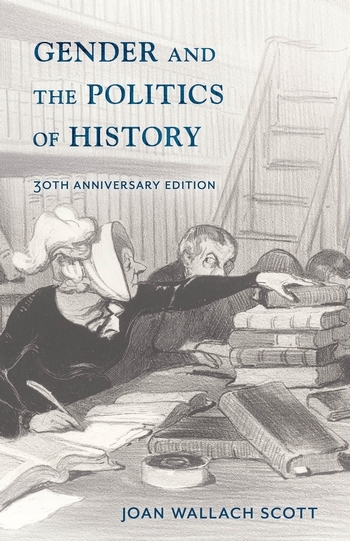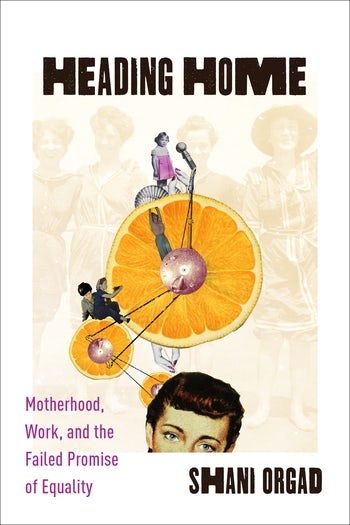Sapphic Foucault
By Lynne Huffer

“Foucault’s Strange Eros challenges its readers to describe aptly, to touch delicately their seeking, mortal, embodied selves. The book elicits and sustains their interest. It rejoices on some pages to weep on others, but it is animated throughout by generous reading and creative responding.”
~Mark Jordan, author of Convulsing Bodies: Religion and Resistance in Foucault
We are ending our celebration of Women’s History Month with a look at Lynne Huffer’s forthcoming book Foucault’s Strange Eros, an analysis of Foucault’s erotic ethics. In the piece below, Huffer rewrites Foucault as a Sapphic poet, and gives a taste of her work in this guest blog post.
Enter for a chance to win this work in this month’s book giveaway.
• • • • • •
What happens when we read Foucault as a Sapphic poet? This startling question drives my new book, Foucault’s Strange Eros. Eros is strange: ancient, unknowable, the more we approach it the more it retreats from us. We have grown used to it by harnessing its energy and domesticating it as a familiar adjective: erotic. But that oh-so-familiar word, erotic, misses the strangeness of its ancient source: eros.
There are many debates about how to read Foucault. A philosopher? A historian? A theorist of power? I say no to all of these. Foucault is a poet who works in the archive. What Foucault finds there are traces: the vestiges of those who lived and died. He calls those vestiges “poem lives.” As poem lives in the archive those traces are dead. And yet they are alive. The life that animates Foucault’s poem lives is a strange kind of love called eros: the love that overtakes the researcher in the archive. To meet the past as Foucault does is to be overtaken by that strange life-love that is eros. We cannot apprehend eros directly: it resists the recording technologies of panoptical power. Eros murmurs as the background that makes those technologies possible.
“There are many debates about how to read Foucault. A philosopher? A historian? A theorist of power? I say no to all of these. Foucault is a poet who works in the archive.”
I hear this eros as an ethical call. But the call is not voiced in the usual sense. The call of eros is an inhale of breath, or a pause in breathing: a suspension. As an ethical call, suspended breath leads to an exhale: the release of the moralities and professional identities to which I have been bound all my life. Women’s, Gender, and Sexuality Studies. Queer Feminist Theorist. With the breathless breath of eros those bonds dissolve. What remains is the respite of wonder.
In celebration of Women’s History Month, I offer this dissolution (of woman and other identities) into wonder not as a new identity, but as momentary respite from the grids of intelligibility that pin us, like lifeless butterflies, to lifeless taxonomies. Eros is life-love that wings us for wonder, if just for an instant.
Just for an instant. Foucault’s eros is poetry in time. Time dissolves, as eros does. This is why Foucault offers us a genealogical method of ruptures to signal the “less than history” that undergirds what he calls history’s plenitude. The continuity we call history (or sometimes philosophy) is built on the backs of that “less than”: sodomites, vagabonds, onanists, debauchers, queers across the ages whose remains appear, if they appear at all, in police reports and doctor’s notes, or as names in asylum registers. Foucault’s strange eros reencounters those remains as poem lives.
“Those poem lives are the flash of the ‘less than’ on which history and meaning are erected.”
Those poem lives are the flash of the “less than” on which history and meaning are erected. Foucault brings them to us in a genealogical mode: as Sapphic fragments. Like the crumbling papyrus on which the 7th-century BCE poet’s words come to us—hole-ridden, evasive, incomplete—Foucault’s genealogies are the poetry of absence.
My book celebrates the Sapphic poetry of eros Foucault offers in his stories about madness, the prison, the clinic, and the proliferating technologies of selfhood. Like the Sappho who comes to us in Anne Carson’s translation as words jostled by brackets of absence, Foucault’s histories of the present invite us to hold ourselves lightly, we who call ourselves the “women” of Women’s History Month. Here in the university, we find ourselves everywhere, from syllabi to textbooks to gender studies exams: “woman” is the result of years of institution building by those who have toiled in the name of women’s studies. But like the poem lives Foucault encounters in the archive, “woman” scatters. As soon as we hold her she dissolves beneath our fingers. As Sappho puts it in Carson’s translation of fragment 29A:
]
]
deep sound
]
Appropriately for this dissolution, Foucault’s Strange Eros ends with lesbians: Monique Wittig’s Lesbian Body, and a photograph of my lesbian mother as a child. Wittig famously wrote that a lesbian is not a woman. The photograph of my Sapphic mother brings a woman into being by unbirthing her. That birthing/unbirthing is the work of eros in the hands of Foucault: it is his Sapphic art.

Check back in tomorrow for excerpts from Lynne Huffer’s earlier works on Foucault, our final Women’s History Month post!








